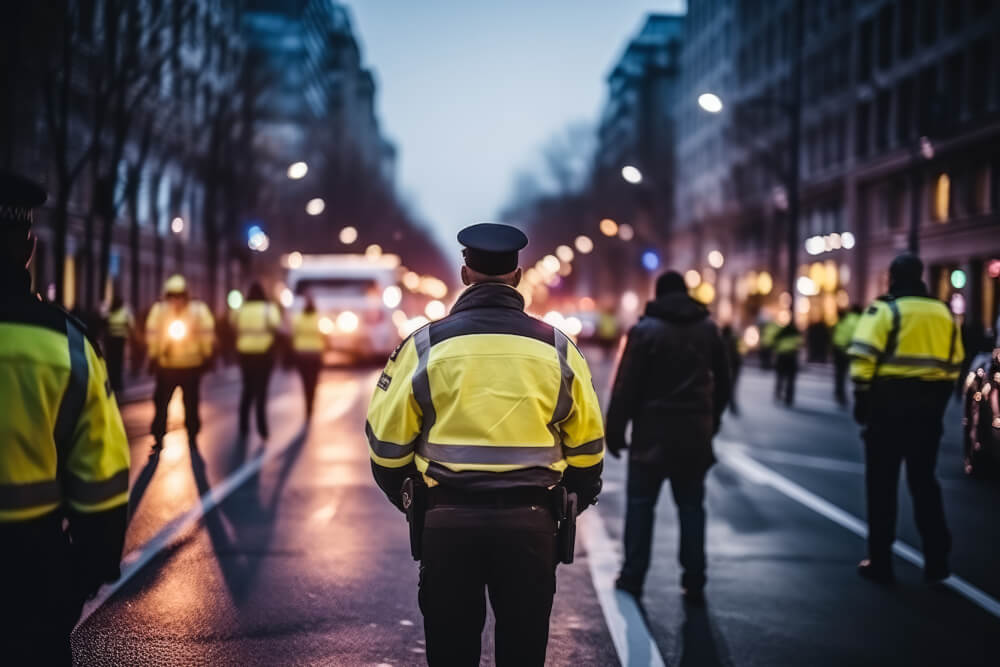
Substance Abuse Among Law Enforcement
When you think of law enforcement officers, you often imagine individuals of unwavering resolve and discipline. However, the relentless stress and traumatic experiences that officers face on a daily basis can take a toll, leading some down the path of substance abuse as a coping mechanism. In South Africa, this issue is particularly acute, given the high rates of violent crime and the strain it puts on law enforcement agencies. Yet, discussing addiction within the ranks remains taboo, creating a cycle of silence and suffering.
One lesser-known fact is that law enforcement personnel are more likely to die by suicide than from gunfire or traffic accidents. The psychological burden, coupled with easy access to substances like alcohol and prescription medication, can create a dangerous cocktail for abuse. Many officers are reluctant to seek help for fear of jeopardizing their careers or becoming pariahs within their own community. Meanwhile, disciplinary procedures often focus more on punitive actions rather than rehabilitative measures. This punitive approach often leaves addicted officers feeling cornered, perpetuating the problem instead of solving it.
In the South African context, the issue is further exacerbated by limited mental health services and social stigma. Your department may lack the resources to provide comprehensive addiction treatment, but that shouldn’t deter you from seeking help. The first step is recognizing the issue. Next, confidential counselling services or peer support groups tailored for law enforcement can offer a lifeline. These services understand the unique challenges you face and can provide strategies to cope.
While the culture within law enforcement agencies can make it difficult for you to break free from the chains of addiction, the good news is that awareness is increasing. Change is afoot, with several organizations actively campaigning for policy reforms that prioritize officer well-being. Remember, asking for help is a sign of strength, not weakness. As the African proverb goes, “If you want to go fast, go alone. If you want to go far, go together.” You don’t have to go through it alone; professional help and community support are key.
Frequently asked Questions
- Why is substance abuse a concern among law enforcement officers? Substance abuse is a concern among law enforcement personnel because the nature of the job exposes you to high levels of stress, trauma, and life-threatening situations. This often leads to coping mechanisms that might include alcohol or drug use. In South Africa, the added stress of high crime rates and societal pressures aggravate the situation.
- Is the problem of substance abuse in law enforcement being addressed in South Africa? Although there is a growing awareness of the issue, the approaches for tackling it are often punitive rather than rehabilitative. However, there are organizations pushing for policy changes that prioritize officers’ mental and emotional health. Your voice could be crucial in furthering these initiatives.
- What are the consequences of not addressing substance abuse in law enforcement? Ignoring the problem can lead to a range of negative outcomes, including compromised decision-making, reduced job performance, and strain on your relationships with colleagues and family. Moreover, law enforcement personnel with untreated substance abuse issues are at a higher risk of suicide.
- Where can officers find support or treatment? Support and treatment options include confidential counseling services and peer support groups designed for law enforcement. You can take the initiative to seek out these services, which are often geared to understand the unique challenges you face.
- Is it career-ending to seek help for substance abuse as a law enforcement officer? While there is a stigma associated with substance abuse in law enforcement, the tides are slowly turning. Some departments are gradually adopting more progressive attitudes towards addiction, focusing on rehabilitation over punishment. Therefore, seeking help could actually be a career-saving decision, especially if done proactively.
The conversation on substance abuse among law enforcement, particularly in the South African context, it’s crucial to recognize the multiplicity of factors at play. The high-stress nature of policing, the systemic issues within law enforcement departments, and the societal pressures in a country with high crime rates can contribute to addiction among officers. However, punitive measures and stigmas often prevent those in need from seeking help. You, as a concerned citizen or law enforcement officer, can be a part of the solution by advocating for changes that provide mental health resources and supportive policies to those affected. Remember, the struggle against substance abuse is a collective endeavor that requires us all to be proactive, empathetic, and informed. As Nelson Mandela once said, “It always seems impossible until it’s done.” Your role could be pivotal in making the seemingly impossible, possible.